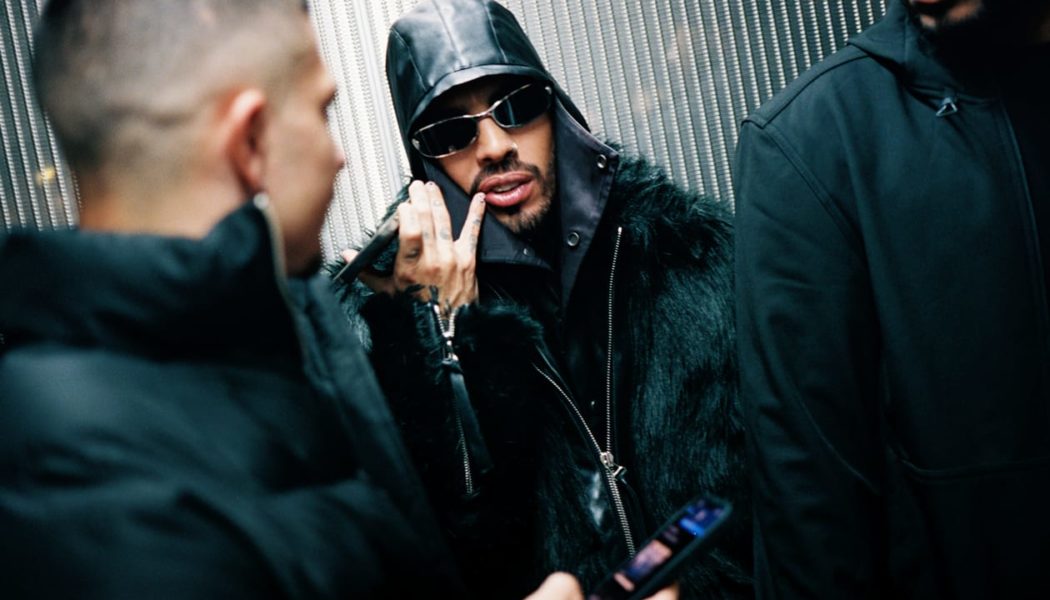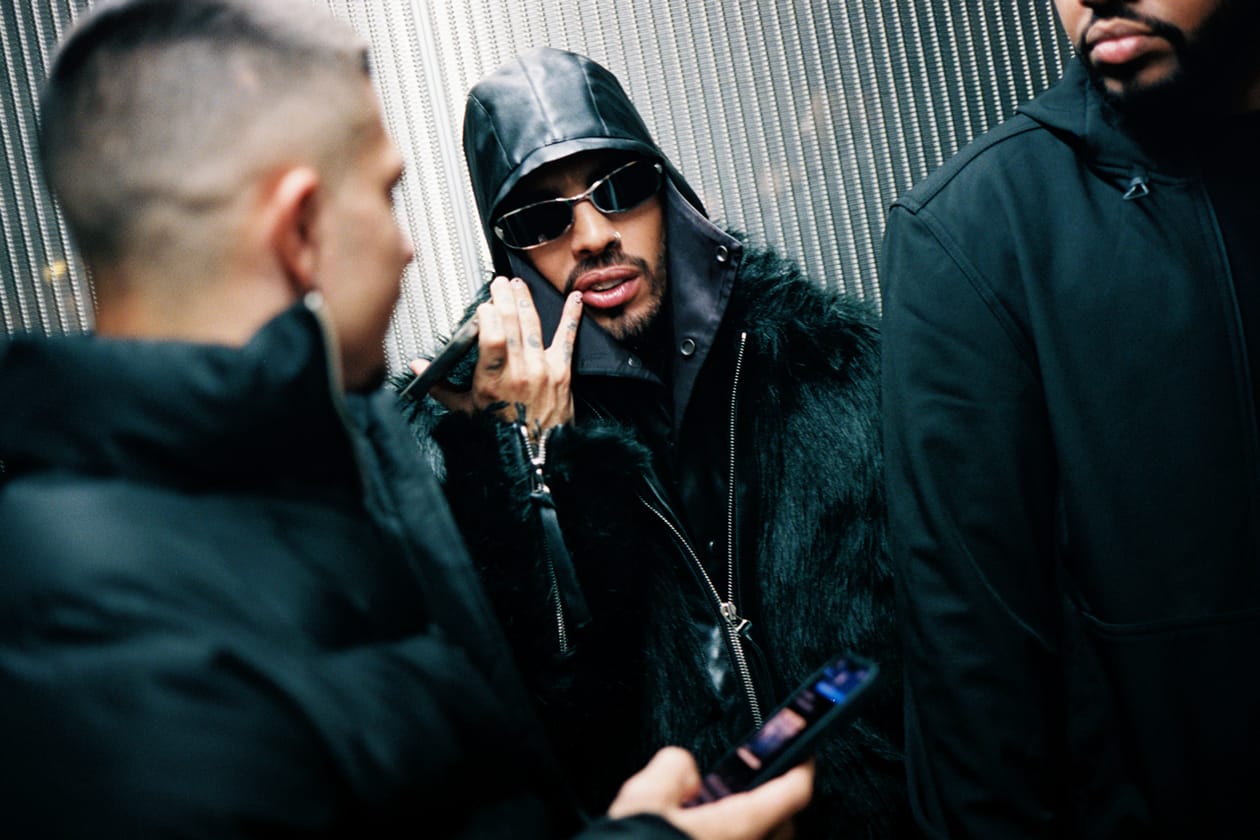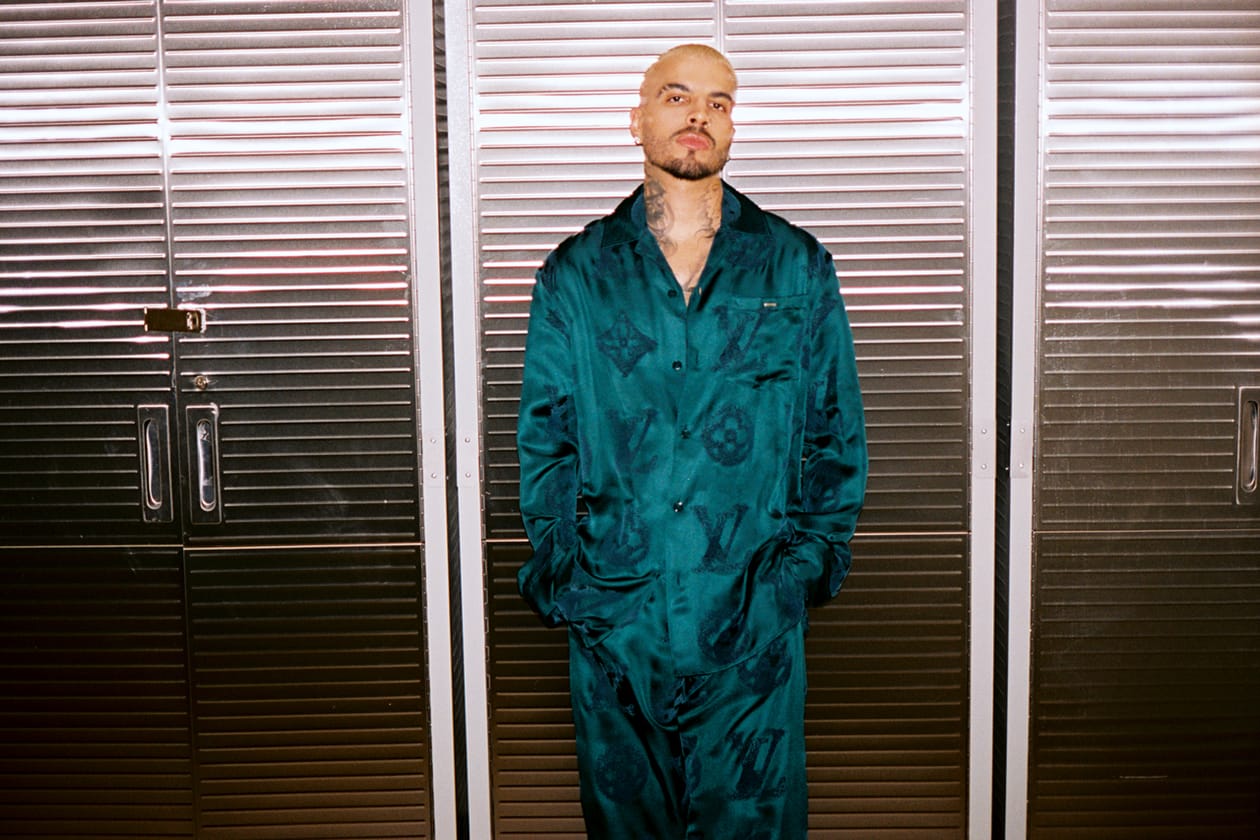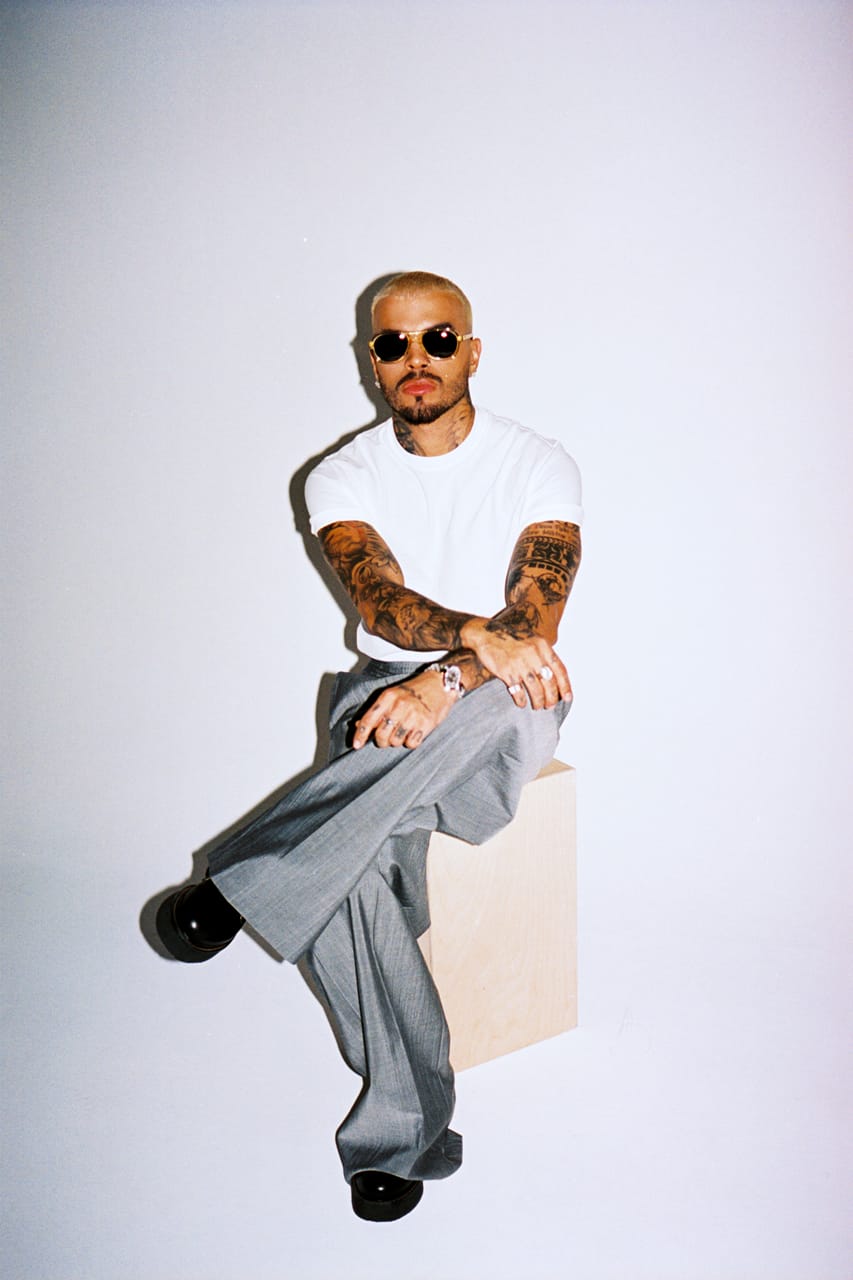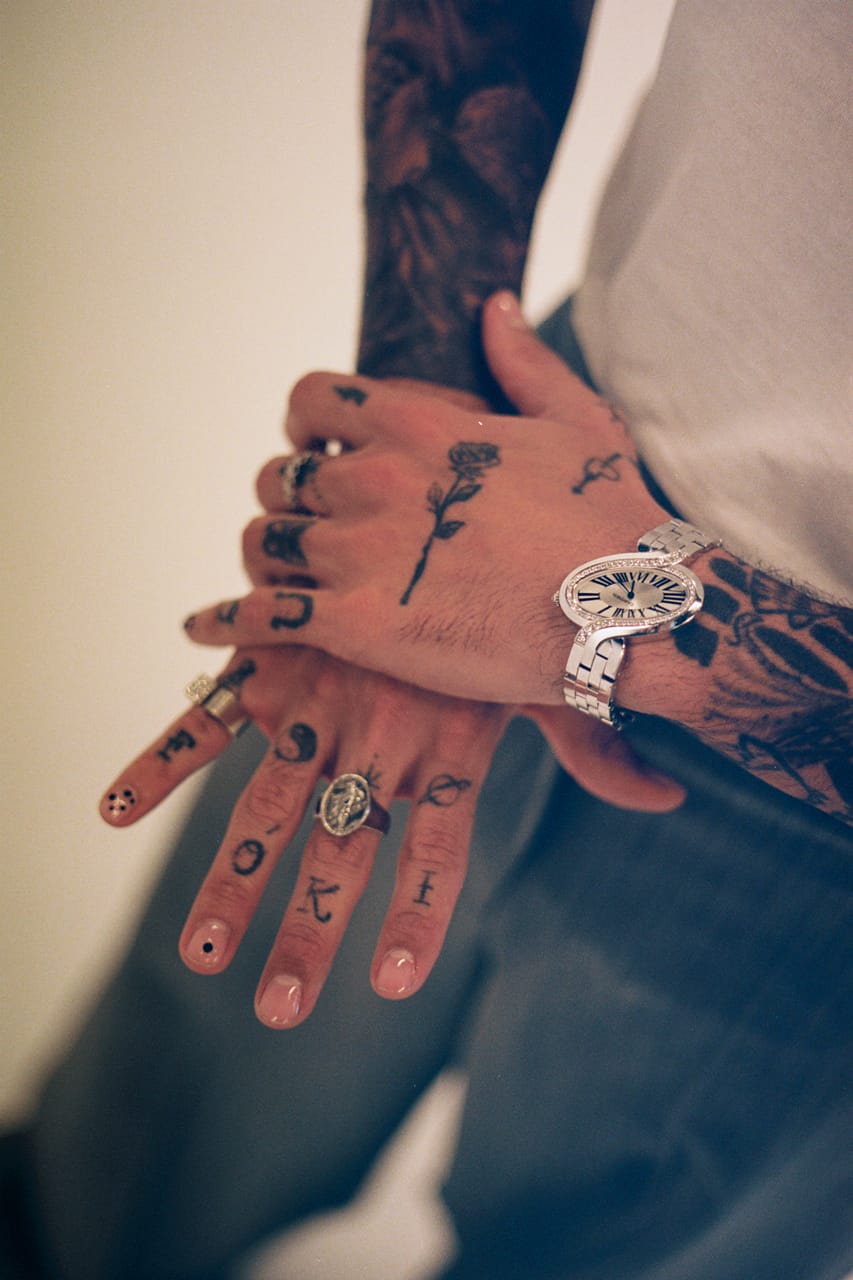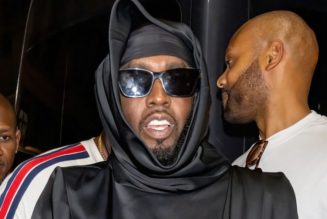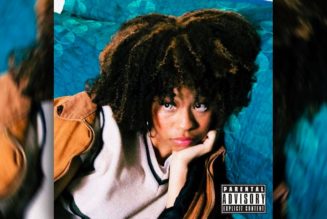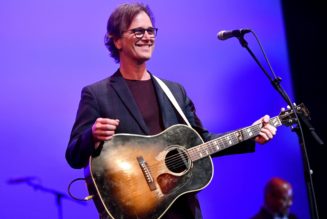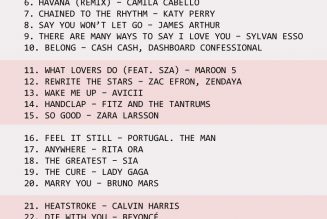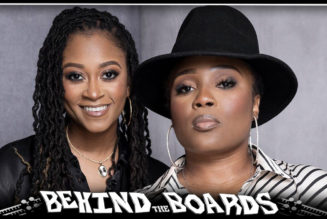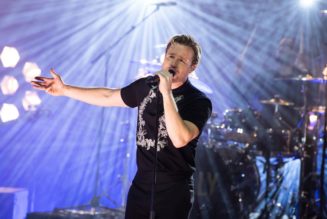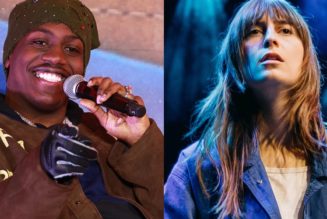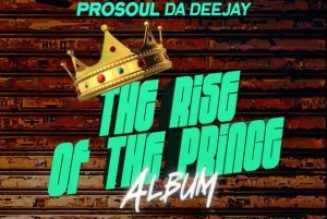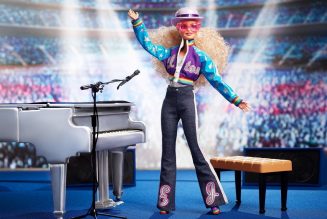This article originally appeared in ‘Hypebeast Magazine Issue 33: The Systems Issue.’
It’s mid-December in Puerto Rico, and Rauw Alejandro is backstage at the iconic Coliseo de Puerto Rico, the archipelago’s biggest indoor arena. Tonight marks the final installment of a sold-out, four-night concert series. Over the next four hours, he’ll perform more than 20 songs.
But Alejandro’s asthma is acting up. He slides into the corner of the couch opposite me so he can speak softly but still be heard. “It’s not chronic,” the musician says. “It’s just the weather sometimes. Before yesterday, my chest was really tight.”
Doctors helped. Now he’s fine, or at least claims to be. Asthma won’t stop resolute Rauw from giving his all onstage, especially in his native Puerto Rico. Tonight is for his fans, his people. It’s not the first time he’s filled this particular venue, but this go-around is extra special: It marks the end of an era.
In 2022, Alejandro built an aural and aesthetic world around Saturno, his third full-length album. While reggaeton will always be his foundation, he notes that “there’s always fusions.” One of those fusions was R&B: an inspiration that’s been crucial in distinguishing himself among his rap and trap-leaning genre counterparts. Saturno was darkly futuristic and heavy on late ‘80s synth and ‘90s drum machine beats. Visualizers featured giant-eyed, crater-headed aliens cruising outer space in blacklit vehicles. On the album cover, Alejandro—who regularly changes his look to match his current creative output—sported blue hair and mirrored glasses. Follow-up Playa Saturno extended the concept another year. Sonically, influences broadened, with an intimate, acoustic guitar opener, more R&B, a reggae cut, and heavier, perreo-style reggaeton (see “Ponte Nasty” with genre legends Jowell & Randy).
It’s been two years, though, and Alejandro says he’s now ready for a creative switch-up. So, the homecoming concerts mark a concluding chapter in his whirlwind career. To celebrate, the coliseum has been converted into a nightclub he calls Club Saturno, one with “no rules.”
The setup includes metallic, lamé-clad extraterrestrials dancing in illuminated columns along the center of the standing-room ground level, which is covered in a giant LED simulation of a dancefloor. Onstage, the nightclub vibe continues: it’s packed with dancers vibing around high-top tables. Producer Paco López later told a local news outlet that something like Club Saturno had never been done before in Puerto Rico.
“You guys are seeing a crazy Rauw onstage — in my single era,” Alejandro laughs.
During the performance, he nails a lot of complex choreography, as he typically does. However, he ups the sexuality meter with plenty of perreo (reggaeton’s hip and twerk-focused dancing), bringing fans onstage to perrear and perreando plenty himself, too. On multiple occasions throughout the show, a broadcaster encourages fans to scream if they wish to go home with Rauw. On the first night, a dildo was flung onstage.
“It’s just fun,” Alejandro says of the concert series. “I’m just doing it for the people that showed me love first, and that was my island.”
Alejandro grew up in Carolina, near the San Juan airport. He got into making music at age 22, later than most superstars, because his passion was invested elsewhere prior. From childhood, he’d aggressively pursued professional soccer to the point of moving to Orlando, Florida in hopes of getting scouted. But an injury at 20 caused an early retirement. He’s grateful, though, that he “had the opportunity to experience normal life,” even when he was “broke as f*ck.” Remembering those times, he adds, helps him appreciate more what he has today.
It’s important to note that Rauw Alejandro is the determined type, always operating with a purposeful gusto at all times. Athletics taught him discipline, and it’s served him well as a career musician. “I’m a person that when I decide to do something, I go for it,” he says. This meant committing fully to his pivot into performing, including taking classes to improve his vocals and dancing.
Ten years after posting his first demos to Soundcloud, he’s a bonafide superstar. His music hovers around the peaks of several Billboard charts, with six consecutive full-lengths — starting with his 2020 debut, Afrodisíaco — making it to the top 10 Latin Albums list. More than 42 million people worldwide listen to him monthly on Spotify, and Saturno received a Grammy nomination for Best Música Urbana Album.
The blissfully saccharine pop cut “Todo de Ti” marked his mainstream breakthrough. It’s the opener on 2021’s Vice Versa, where he explored sounds he describes as retro, happy, and romantic, with shades of Brazilian funk and house throughout. While the single grew his fame exponentially, Alejandro already had a solid following of fans drawn to his R&B-heavy style. In early interviews, he often cited Chris Brown as a major influence, not only for the artist’s sound but also his showmanship. Few artists in the Latin reggaeton and trap realm focus so intensely on dance as Alejandro does, simultaneously singing and delivering energetic choreography. That level of performance, on display in his music videos and in concert, has made him a standout.
However, the key to breaking through was not just determination, but an acknowledgment that he couldn’t do it alone. Alejandro is a solo act, but he knew from the start that to truly succeed, he would need a rock-solid team behind him. “In this life, suc- cess—I think it’s about teamwork,” he says. Many celebrities’ teams, especially those of musicians, are composed primarily of “day ones” — the folks who believed since the start and helped push an artist through the arduous come-up process. The makeup of Alejandro’s team is much like this. And some of his day-ones go all the way back to the 31-year-old’s teenage years.
Mr. NaisGai is one. He’s Alejandro’s mainstay producer, having worked on every full- length release, from 2020’s Afrodisíaco to last year’s Playa Saturno. They knew each other only tangentially throughout high school, but shortly after graduating, he found out Alejandro was writing music and even beat-making on his own time. NaisGai messaged him on Facebook, the two linked up, and they’ve been practically inseparable since.
We understood each other,” NaisGai says of the duo’s start. “I’d bring Rauw rhythms and he’d say, ‘I like this from this one, and this from another one.’ He already had in mind how the song would be. It helped a lot that Rauw thought like a producer.”
Backing Alejandro is his own personal production group, Los Sensei, Inc., which includes producers, publicists, and label management. Many of them, like NaisGai, joined Rauw’s journey early on. “Los Sensei have been with him basically forever,” NaisGai says.
Alejandro stresses how important the crew is to the creation of the music. With eyes wide, he says, “We can be two weeks in a studio, and we create, like, seven albums.” The comment elicits a grin from NaisGai. “That’s called hyperbole,” NaisGai laughs. “But I don’t want to take away merit from that. We work much faster than the average team.”
“We already have an operating system, a chemistry,” NaisGai notes. And that symbiosis goes far beyond creating songs. These guys are more than collaborators, more than a working team. “We’re friends before anything else,” he adds. “Advice? We’re here for that. If Rauw needs opinions, moral support, or a hug—that’s what we’re here for.”
At this point, Nais Gai shows me proof of their brotherhood: a tattoo of Alejandro’s fox logo on the inside of his left wrist. “That’s the mark of the fox,” he says. “It’s the mark of the brotherhood we have. The commitment we made to Rauw.” Everyone in Los Sensei has a version of the ink, NaisGai adds.
Recently, Los Sensei gained another member: Alejandro’s mom. She’s now head of human resources. “Everyone loves her,” the artist says. “And it’s my mom. Who’s going to protect you more than your mom?”
The rest of his team, though? They’re family, too. Their history together, their collective come-up — it’s what makes the difference in Alejandro’s ability to deliver. “They’re the real doctors,” he says. They know when personal problems are dragging him down, when he’s sad, mad, or even hungry.
Alejandro and I talk briefly about what’s next. “I got a lot of ideas,” he says shortly before taking the stage at Club Saturno. A few months from now, he’ll return with a brand new musical world and a new look. “All my albums have fusion, fusiones, and they focus on different types of colors — musical colors.”
But whatever happens, he assures, his team won’t change. After all, there’s no sense in fixing something that’s not broken. “This life that I have, being away from your family and your friends? It would be really, really hard,” he says. “I always say that I’m lucky to be in this life, in this career, with them.”
